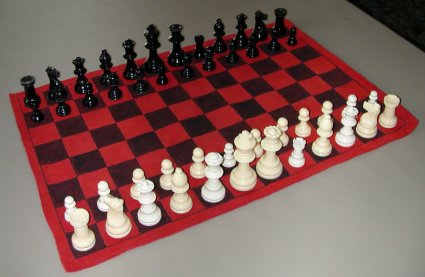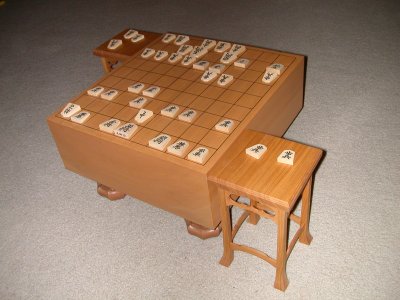Jeff drove his pickup across rolling open land, purple mountains in the distance. The blue sky of western Colorado in August stretched overhead. In the rearview mirror Jeff saw clouds of dust billowing out behind the Ford
F-150. A hot, dry day. Rain last week, could use some more. All across the family ranch it was dry like this. Could use some more rain.
Now up ahead Jeff saw his destination. The ravine. Jeff stopped his pickup, killed the ignition. He got out, put on his backpack, slung a coil of rope over his shoulder. He would walk the last half mile to the ravine.
Jeff had been meaning all summer to get out here to the ravine. Now came at last a quiet day when he could get away. The ravine, as part of the ranch, had been in the family since the late 1800s. Jeff remembered when he was a young man, and his father had shown him the ravine for the first time. One of these times in the next few years Jeff would have to bring his sons out here to the ravine.
But not until they were old enough to understand, old enough to keep a secret, old enough to understand a sacred trust. The ravine must always be guarded. The ravine must always be kept safe. The ravine was the reason why the ranch must always remain in the family in perpetuity.
As Jeff reached the ravine, he uncoiled the rope from his shoulder. He looked around at the Gambell oaks, the cedars, the junipers which flanked the edge of the ravine. Never had Jeff known a ravine which was so difficult of access. No way in, no way down, except to descend the sheer rock wall. Jeff ran the rope around the trunk of a sturdy oak, fastened the strong metal clip. He tested the rope with his full body weight. Good. Now Jeff ran the rope out, down, down, down, into the ravine. All the way down. Then he clipped himself to the rope and put on heavy work gloves.
Jeff climbed slowly, carefully, down the rock wall and into the ravine. Down out of bright sunlight and into the shade. Careful, there were slick spots, overgrown with moss. Other places, here and there, Jeff could see the handholds and footholds cut into the rock by Indians, hundreds of years ago. Carefully, slowly, Jeff descended until he reached the bottom of the ravine.
Jeff unclipped himself from the rope, then sat and rested on the flat top of a large boulder, as his eyes adjusted to the deep shade here at the bottom of the ravine. Deep shade: for a few hours at midday the sun might shine down in here, but most of the day the ravine was cloaked in obscurity. And cool, no heat of summer down here. Nor did it get very cold in the winter: the hot springs down here kept it moderate even in January. And humid year round.
Jeff looked around in the shade. Most of the trees down here in the ravine were not the trees that flourished in the world above. Most of the trees down here, far as Jeff could tell, were ginkgo. Ginkgo trees, or something very like. Odd, ginkgo trees over in China were referred to as "fossil trees." Ginkgos grew down here. And other vegetation, including ferns. Lots and lots of ferns grew in the moist, moderate temperatures which prevailed down here in the deep shade.
Ginkgo, "fossil trees." The world down here in the ravine was a world out of time, a fossil world, a world where little had changed in millions of years.
Now, the creatures. Where were the creatures? Jeff looked around, his eyes adjusted to the dimness. He looked... yes, right over there. Over by that ginkgo. Over there, browsing, grazing, eating ferns and other plants...
Jeff always felt a tingle go up his spine when he saw the creatures. There were two, three young ones, and a full-grown adult. The young were the size of watermelons, the adult was the size of a large washtub. Jeff watched the full-grown creature as it grazed, its broad back studded with knobs and plates of bone, full body armor. Bone spikes fringed the sides of the creature's body. Its broad horned head, wider than it was long, was also covered with knobbed bone armor. And behind it the creature's armored tail, with a heavy bone club on the end.
The creature moved on short, squat legs as it fed. The little ones followed and grazed alongside; they had probably hatched in the spring. These creatures had nothing to fear. There was no way for any animal to get down into this ravine, or back up out again. And any animal that did somehow get down here... it could never pierce the creature's armor, and it would do well to stay clear of that massive bone club on the creature's tail. Coyote, mountain lion, even bear... that bone club on the creature's tail would be the end of them.
Jeff shuddered at the sight of the creatures, placidly grazing in their heavy bone armor. Then a deep feeling of peace came over him. Jeff seldom felt so whole, so alive, as when he was out here in the ravine. Out here in the ravine with these creatures. Jeff had read books. He had seen pictures, artist's renderings, of the ancient dinosaurs, of Ankylosaurus. These creatures... they must be some kind of small ankylosaur. Jeff didn't know. Some kind of small ankylosaur which had survived beyond its time, for many millions of years, down here in the mild world of the ravine, isolated and cut off from the world above.

Small ankylosaurs. Ginkgo trees. And there were other creatures down here too, such as the little blue-green scavenger reptiles, not six inches high, which ran upright on their hind legs and fed on carrion. The ravine was a world unto itself.
Indian footholds cut into the rock walls... It was from the Indians, back in the late 1800s, that Jeff's great-great-grandfather had first learned of this place. The Indians used to come here too. They would leave packages of tobacco as offerings, atop this very boulder. The Indians had not been to the ravine now in almost 100 years. The stories were still handed down in Jeff's family. The name was handed down too, the name by which the Indians had called these armored creatures:
tóónohuipé'aúúsh, "those which dwell in the ravine."
And that was why this ravine far out in western Colorado was a sacred trust. Why the ranch must always stay in the family. These creatures must be protected, must be kept a secret from the outside world. If word of them ever got out... first there would be the curiosity seekers, then the hunters in search of a trophy, then the researchers come to gather specimens. Finally would come the idle daytrippers, and the destroyers and the vandals. Graffiti on these hallowed rock walls. Initials carved into the ginkgo trees. Empty pop cans amidst the ferns. The creatures all dead, or in a laboratory, or in a zoo.
The noble
tóónohuipé'aúúsh... this must never happen to them! That was why Jeff always kept this ravine a strict secret, as had his forefathers before him.
Jeff sat there silently for several hours, watching the creatures move and feed among the plants. Then he got up, inspected the rope, and readied himself for the climb back up to the outer world.
Labels: fiction
















